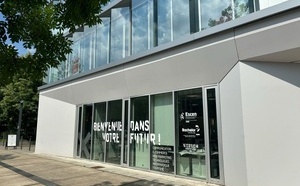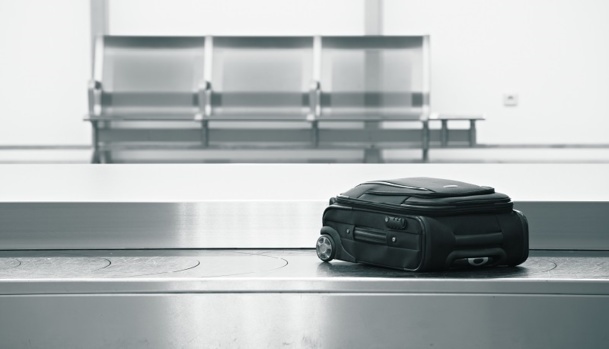
Every day, more than 82,000 bags are lost in the world and 13% of them are never found by their owners. Fotolia © Chalabala
Whether on vacation or business trip, losing a suitcase is always the worst possible scenario. In 2012, the cost of lost or delayed baggage amounted to $2.6 billion for the year.
The "lost objects" officers are often forced to deteriorate suitcases when opening them (by breaking locks or zippers) to find information about the traveler.
With E-Lostbag there is no need to open the suitcase.
An identification system in case of lost baggage has been implemented through a Radio Frequency Identification (RFID) chip. It allows the identification of the bag in case of loss.
The idea is simple: the traveler orders his chip on the company’s website and creates an account by providing his personal information necessary.
An essential step in order to be contacted when the suitcase is found. No personal information of travelers are recorded.
Once the chip is received, you just have to stick it inside the bag and place a sticker on the outside to indicate that it is equipped with the E-lostbag system.
The "lost objects" officers are often forced to deteriorate suitcases when opening them (by breaking locks or zippers) to find information about the traveler.
With E-Lostbag there is no need to open the suitcase.
An identification system in case of lost baggage has been implemented through a Radio Frequency Identification (RFID) chip. It allows the identification of the bag in case of loss.
The idea is simple: the traveler orders his chip on the company’s website and creates an account by providing his personal information necessary.
An essential step in order to be contacted when the suitcase is found. No personal information of travelers are recorded.
Once the chip is received, you just have to stick it inside the bag and place a sticker on the outside to indicate that it is equipped with the E-lostbag system.
A service with added-value
As a good advisory strategy, travel agents can recommend this service to their customers. While no commission is collected it is still a valuable way for travel agents to showcase their expertise.
For airports and hotels, it can also be a great plus to offer this service to passengers.
For this, they must first make a request to open an account and wait 24 hours for its activation.
During this period, the service verifies the accuracy of the information provided by doing some research (internet, intelligence services...) After validation, users can have unlimited and free access to the system.
Then, all tourism professionals require is a simple contact-less chip reader to identify the owner.
For airports and hotels, it can also be a great plus to offer this service to passengers.
For this, they must first make a request to open an account and wait 24 hours for its activation.
During this period, the service verifies the accuracy of the information provided by doing some research (internet, intelligence services...) After validation, users can have unlimited and free access to the system.
Then, all tourism professionals require is a simple contact-less chip reader to identify the owner.
Limit the cost of compensation
In the case of the disaster scenario, tourism professionals now have a role to play.
Once the bag is found, they can contact the owner by mail or email which sets off the process of returning the luggage.
Faster and more efficient, this service also allows airline companies to limit the costs of compensation.
Indeed, they are currently obliged to advance the costs of travelers’ basic necessities (clothing, medicine, hygiene products) to the extent of €100 per person.
If the baggage is not delivered to the customer within the 21 days following the loss, the company will have to compensate according to the policies to which it belongs, an amount defined by the registered weight of the luggage.
The Geneva airport, already using this service, is satisfied with the effectiveness of E-lostbag.
Once the bag is found, they can contact the owner by mail or email which sets off the process of returning the luggage.
Faster and more efficient, this service also allows airline companies to limit the costs of compensation.
Indeed, they are currently obliged to advance the costs of travelers’ basic necessities (clothing, medicine, hygiene products) to the extent of €100 per person.
If the baggage is not delivered to the customer within the 21 days following the loss, the company will have to compensate according to the policies to which it belongs, an amount defined by the registered weight of the luggage.
The Geneva airport, already using this service, is satisfied with the effectiveness of E-lostbag.
An E- lostbag chip costs 6.99 euros
The goal is to create a partnership with a larger number of players to promote the service and reduce the risk of permanently losing luggage.
Already widespread in the United States and Switzerland, the goal today is to bring it France.
The company has already registered 600 luggage identifications, but does not know if the customers have collected their belongings.
That is why a system that allows customers to report on the site if they have received their luggage is currently being created.
An E-lostbag chip costs 6.99 euros. The client may at any time change its information and add a temporary address when moving.
The customer can then track his or her luggage during the whole journey.
Already widespread in the United States and Switzerland, the goal today is to bring it France.
The company has already registered 600 luggage identifications, but does not know if the customers have collected their belongings.
That is why a system that allows customers to report on the site if they have received their luggage is currently being created.
An E-lostbag chip costs 6.99 euros. The client may at any time change its information and add a temporary address when moving.
The customer can then track his or her luggage during the whole journey.
City Locker, three luggage storages in the center of Paris
Technological innovations are facilitating travel. Tourism professionals need to know about these influential services to keep their clients up to date.
For example, you can reassure your customers by telling them about City Locker, a new company created less than a year ago.
It offers a luggage storage service in the center of Paris at the Gare du Nord, in the Marais and Saint-Germain-des-Prés.
Gone are the days where you had to keep your baggages on you all the time during a layover in the capital: now it is possible to place them in storage for an hour or a few days.
Travelers just need to register online via a smartphone, tablet or computer and book a locker. Depending on its place of arrival and availability in the storage, it will be directed to one of the free spaces.
A unique passcode per locker will be sent by message or email.
To increase security, the codes are changed daily. The lockers can accommodate a large suitcase and a small bag or two “cabin” size bags. The only condition is that the weight does not exceed 30 kilos per locker.
Open everyday of the week from 8am to 10pm, the storages are all equipped with video surveillance and an alarm system. Whether for an hour or three days, for a suitcase or a shopping bag, the access is available to all at a starting rate of €10 per day.
For example, you can reassure your customers by telling them about City Locker, a new company created less than a year ago.
It offers a luggage storage service in the center of Paris at the Gare du Nord, in the Marais and Saint-Germain-des-Prés.
Gone are the days where you had to keep your baggages on you all the time during a layover in the capital: now it is possible to place them in storage for an hour or a few days.
Travelers just need to register online via a smartphone, tablet or computer and book a locker. Depending on its place of arrival and availability in the storage, it will be directed to one of the free spaces.
A unique passcode per locker will be sent by message or email.
To increase security, the codes are changed daily. The lockers can accommodate a large suitcase and a small bag or two “cabin” size bags. The only condition is that the weight does not exceed 30 kilos per locker.
Open everyday of the week from 8am to 10pm, the storages are all equipped with video surveillance and an alarm system. Whether for an hour or three days, for a suitcase or a shopping bag, the access is available to all at a starting rate of €10 per day.






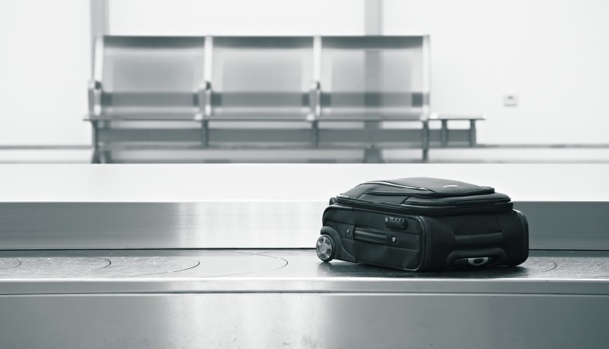








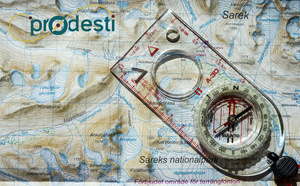





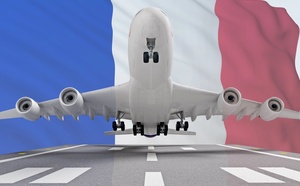




![Futuroscopie - Crise de la presse, crise du réel, fatigue informationnelle [ABO] Futuroscopie - Crise de la presse, crise du réel, fatigue informationnelle [ABO]](https://www.tourmag.com/photo/art/large_16_9/85025254-60665965.jpg?v=1734537945)


